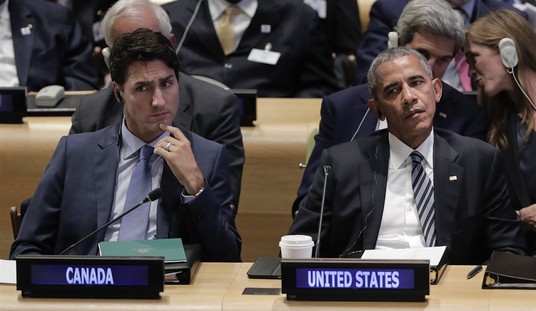Caving to political correctness, the Portland (Oregon) Police Bureau announced Friday that they will no longer designate gang affiliates or gang members, and they will delete the two-decade-old database currently maintained by the bureau. This move is a result of a news report a year ago noting that, of the 359 current members of the list, 81 percent belong to a racial or ethnic minority. Since that report, community activists have worked to eliminate the police practice.
The gang designation database has been in place since the ’90s. It is used by the Gang Enforcement Team in a variety of ways and can help responding officers know to use caution when responding to a call that involves a suspected gang member. It also helps with investigations of gang shootings, because it can be difficult to find cooperative witnesses in such cases.
Veteran law enforcement officials expressed concern over the announcement. Some fear this will severely hamstring investigations of gang-related crimes. Gathering intelligence on gang affiliations is an important tool for investigating such crimes, and without it, police could be left in the dark. Combined with state RICO statutes, this database has been an important tool in investigating crimes and securing convictions for violent gang members.
Some veteran law enforcement officials, who spoke on the condition of anonymity, urged caution in reacting to this move. They said they will have no real idea of the scope of the changes until a draft of the order is prepared. That is scheduled to be released by the police bureau later this week. The policy takes effect October 15.
The charges of racial motivation in the gang affiliation database are hard to prove. According to the original report from OregonLive last year, about 90 percent of people on the list admitted to the police that they were gang members. That story quoted Captain Mike Krantz, who led the Gang Enforcement Team for three years before a promotion:
Police say gang designations keep patrol officers safer because when they run a driver’s name, a gang flag signals they should use caution. Police also say tracking gang members is important to solving gang shootings, a crime for which finding witnesses is notoriously hard without good intelligence. Gang officers say the demographics of the list reflect the people involved in those shootings.
“We aren’t making the situation, we’re just responding to it,” Krantz said.
Indeed, the report made the database sound mostly voluntary, and mostly effective:
- People who challenge a gang designation are more likely than not to prevail. Since 2012, 21 of the 37 people who appealed their designations avoided being listed. The reversals followed a hearing in front of a gang team supervisor or subsequent appeal to a panel of community members.
- Police rarely cite a gang-related crime to justify designating someone a gang member. Officers are more likely to rely on visible signs (gang tattoos, clothing or jewelry) or behavior (posing in photographs with people flashing gang signs; demonstrating knowledge of a gang’s “history, leadership, activities or rituals”).
- Almost every time police label someone a gang member, they say the person admitted it. Police cited an admission or assertion in about 9 out of 10 cases. It was cited as the sole justification in about a quarter of all cases. Several people who challenged a gang designation said they only told police about long-ago gang ties. One man wrote on top of a hearing-request form, “I have not been around gangs for more than 17 years.”
- Lies can land people on the list. In three appeals since 2012, a gang supervisor agreed that the person had lied when claiming to be part of a gang. Two other people appealed successfully by saying someone else had impersonated them when contacted by the police.
However, activists in the Portland community claim that the list feeds racial profiling, especially among young black males. They say that as they get older and leave gang life, remaining on the list can be a sort of scarlet letter that makes finding gainful employment difficult.
It is telling, however, that of the 100 or so people listed per year since 2012, only 37 have filed appeals, and 21 of those were successful in getting taken off the list. The rules for being placed in the database to begin with are rather simple: one must have self-identified as a gang member, committed a gang-related crime, participated in a gang initiation, or have two observable signs of gang affiliation (tattoos, chains, etc.).
According to Capt. Krantz, these designations will no longer appear when an officer runs someone’s name through the police mobile database when they respond to a call. What will continue to appear is “alleged criminal conduct.” Police are also hoping to rely on improved technology from the Oregon State Police crime lab when investigating shootings. They hope that comparing bullets and shell casings more rapidly will fill in for the missing gang affiliation information.
One can’t help but to wonder if this will lead to appeals by already convicted gang members for violent crimes committed. After all, if their names were in the database, wouldn’t that amount to the poisoned evidence tree?
This move also fails to address the reasons why so many young men choose the gang lifestyle. This isn’t even putting a band-aid on the rampant inner city problems of broken homes, unemployment, drug abuse, and general hopelessness that leads to teens and young adults joining gangs.









Join the conversation as a VIP Member